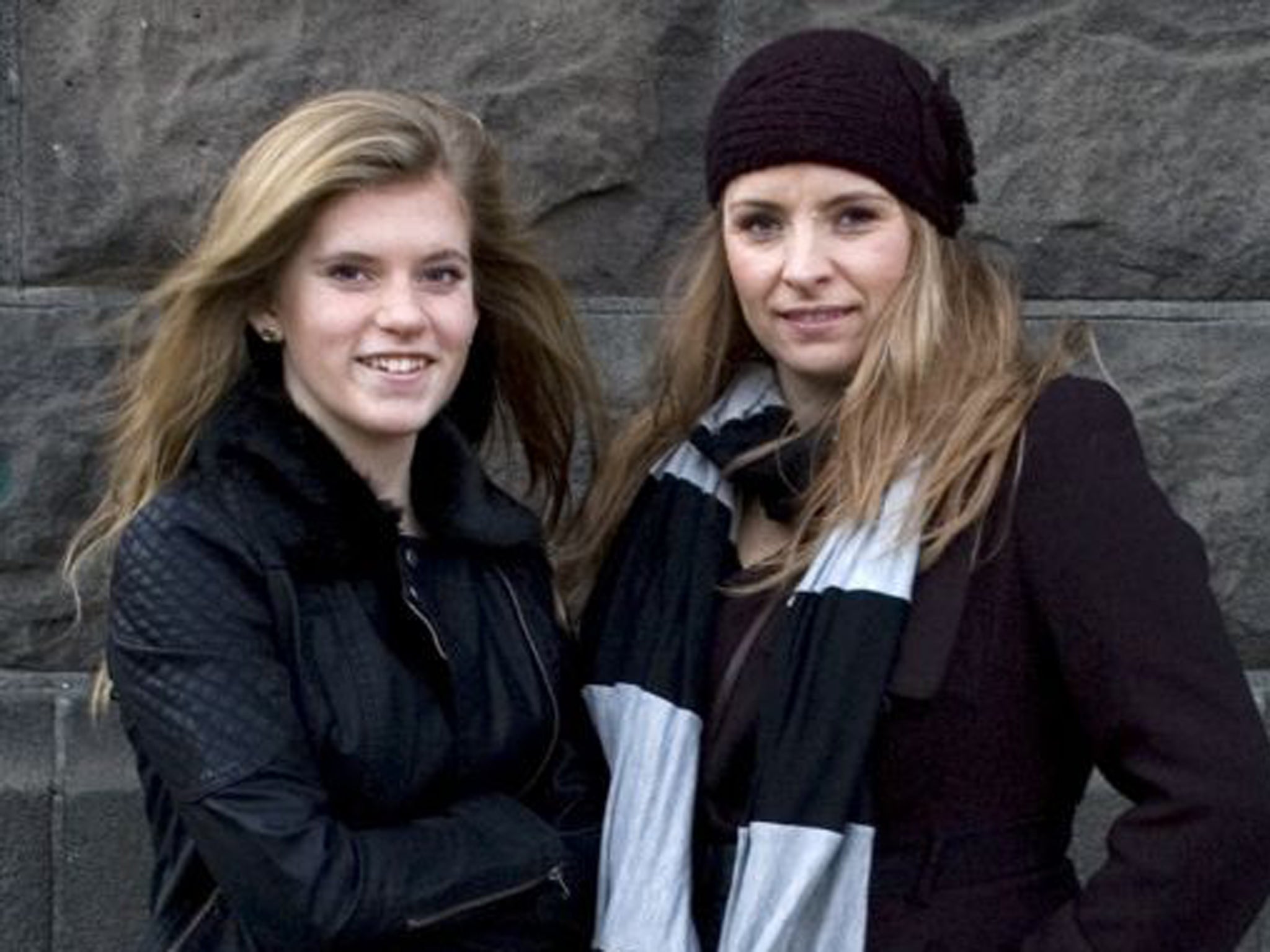15-year-old girl with missing moniker set to sue Icelandic government in fight to legally use her name
Parents who don't want to take a name from a government list have to apply to a special committee that has the power to say yes or no to the chosen name

What's in a name? In Iceland rather a lot it seems.
A 15-year-old girl is suing the Icelandic government over the right to legally use the name given to her by her mother.
Iceland, in common with Germany and Denmark, has a list of names which parents are allowed to use.
Officials say the 'Personal Names Register', which contains over three thousand approved names, exists in order to protect children from embarrassment and ensure that names fit Icelandic grammar and pronunciation rules.
Parents who have their own ideas, and don't want to take a name from the list, have to apply to a special committee that has the power to rule yes or no to the chosen name.
In the case of Blaer Bjarkardottir, whose first name means means "light breeze" in Icelandic, her mother said she learned the name wasn't on the register only after the priest who baptized the child later informed her he had mistakenly allowed it.
"I had no idea that the name wasn't on the list, the famous list of names that you can choose from," said Bjork Eidsdottir, adding she knew a Blaer whose name was accepted in 1973.
The panel turned the name down on the grounds that the word Blaer takes a masculine article, despite the fact that it was used for a female character in a novel by Iceland's revered Nobel Prize-winning author Halldor Laxness.
As a consequence of the rules Blaer is identified as "Stulka" — or "girl" — on all official documents, leading to years of frustration as she repeatedly has to explain the reason for her missing moniker.
In recent years, thanks to a relaxation of the rules, the name Elvis has been allowed, but Cara, Carolina, Cesil, and Christa have been rejected outright because the letter "c" is not part of Iceland's 32-letter alphabet.
"The law is pretty straightforward so in many cases it's clearly going to be a yes or a no," said Agusta Thorbergsdottir, the head of the committee, a panel of three people appointed by the government to a four-year term.
Other cases are more subjective.
"What one person finds beautiful, another person may find ugly," she acknowledged.
She pointed to "Satania" as one unacceptable case because it was deemed too close to "Satan."
The board also has veto power over people who want to change their names later in life, rejecting, for instance, middle names like Zeppelin and X.
Given names are even more significant in tiny Iceland that in many other countries: Everyone is listed in the phone book by their first names. Surnames are based on a parent's given name. Even the president, Olafur Ragnar Grimsson, is addressed simply as Olafur.
So many strange names have been allowed, which makes this even more frustrating because Blaer is a perfectly Icelandic name,” Ms Eidsdottir said. “It seems like a basic human right to be able to name your child what you want, especially if it doesn’t harm your child in any way.”
“And my daughter loves her name,” she added.
Annette Curtain, Paige Turner and Jo King (just some of the names parents have given their children in Britain) may well have some sympathy with the government's position.
Subscribe to Independent Premium to bookmark this article
Want to bookmark your favourite articles and stories to read or reference later? Start your Independent Premium subscription today.

Join our commenting forum
Join thought-provoking conversations, follow other Independent readers and see their replies